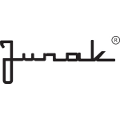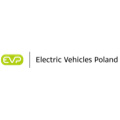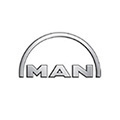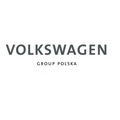11_“Electromobility on the Polish automotive market – a shift to the first gear”
According to the Sustainable Development Strategy,one million electric vehicles are to be used on Polish roads by 2025, which should drive the development of innovative industry. As part of the strategy, a detailedElectromobility Development Planwas published, with three stages of actions, including the provision of incentives to purchase electric vehicles. As demonstrated in analyses conducted in European countries, government activities supporting electromobility solutions are a vital catalyst for the development of the electric vehicles market in the light of limited charging infrastructure and higher vehicle prices than in the case of vehicles with traditional engines. A large number of EU Member States have introduced incentive schemes – in most cases in the form of tax incentives (exemptions or credits) or direct subsidies for the purchase of vehicles. Such a package has also been developed by the Polish government. By 2020, the development of electromobility is to cost approx. PLN 19 billion; further PLN 40 billion needed for network development will be provided by energy companies. In addition, the government has introduced the e-bus scheme, whereunder the Council of Ministers intends to support the purchase of electric buses by local authorities. Local governments have already declared that they are interested in acquiring 780 vehicles by 2020, which is reflected in orders actually made in the last weeks. According to the plans, the scheme, worth PLN 2.5 billion per year, is to provide 5 thousand jobs and contribute to the creation of a globally recognisable Polish brand selling around one thousand buses annually. Also, the share of domestic enterprises in the production of automotive parts is to grow from 30 to 70%.
In order for such large numbers of electric vehicles to travel on Polish roads, it is necessary to develop the battery charging infrastructure. The Ministry of Energy expects that 6,000 new standard charging stations and 400 high-power charging stations will have been created by 2020 in 32 agglomerations all over the country. However, this is only the beginning of the development path. The investment leap related to the development of infrastructure is estimated at more than PLN 2 billion by 2025.
The development of the electromobility market will generate numerous business opportunities, including: extension and maintenance of the battery recharging infrastructure, sale of electricity, energy distribution, production and sale or lease of chargers, lease of land and real property for charging stations, sale of vehicles and components for electric vehicles, development of mobile applications to locate the nearest charging stations, and applications related to car pooling.
Companies that wish to take advantage of the development of electromobility must find answers to several strategic, business and technical questions – above all, how to finance the development of infrastructure, and secondly, how to construct the offer to build margin.
In the opinion of the PwC automotive consulting team experts, although electromobility seemed a distant future not long ago, it has quickly become a current challenge, and shortly, it will bring significant new opportunities.
Electromobility is the future, and a real revolution awaits us in the coming years. Electric vehicles have undisputed advantages, e.g.: they are less prone to failure, their structure is simpler, and they have a less negative impact on the environment. So far, the battery capacity is a barrier, and therefore – the vehicle range after one charging and thus the related network of battery charging stations. Already the range of an electric car may reach 500 km, and the charging time 30 minutes, but such solutions are too costly to be used on a wide scale. However, over the next few years we expect a breakthrough in the charging technology, which will result in a reduction of the psychological barrier among potential buyers.
From my observations of the market, it is clear that the breakthrough may be even quicker than we expect. Electromobility is a priority for most large market players and nobody wants to be left behind in this race. During our conversations with importers, we often discussed the issue of subsidies for the purchase of electric vehicles, as such incentives could be an appropriate stimulus with a positive impact on the change in consumer behaviour.
The revolution can result in an even faster transformation of public transport (buses) or the area of commercial vehicles which travel shorter distances. In their case, lower maintenance costs can balance higher purchase costs even now. In view of this opportunity, Polish companies are already working to become an important player in the bus sector in the region.
As for the consumers, in addition to the cost aspect, it is worth to point the attention of companies to the potential of fleets based on electric vehicles, and thus, to the aspect of social responsibility in business. A significant number of new vehicles sold on the Polish market are delivered to business consumers. Taking into account aspects such as the purchasing power of companies, centralised investment management, and fleet management systems, economic operators seem to be consumers with the best qualifications to promote the sale and use of electric vehicles.
Contact:
Piotr Michalczyk
Partner at PwC, Leader of the automotive sector consulting team
Marcin Bagiński
Senior Manager at PwC, Expert of the automotive sector consulting team
























































